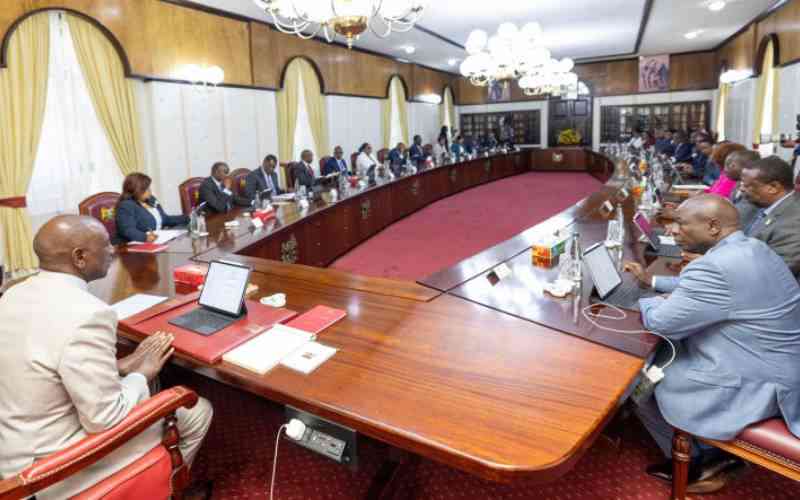×
The Standard e-Paper
Stay Informed, Even Offline

President William Ruto chairs a cabinet meeting at State House, Nairobi. [File, PCS]
President William Ruto has reprimanded State officials over the recurring nationwide electricity outages.